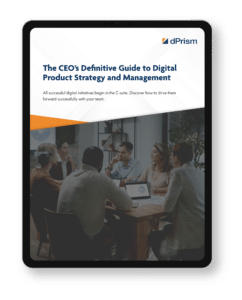Putting customer insights into action is one of the most challenging steps for product leaders. Customer conversations are valuable, but they rarely get turned into actual product roadmaps.
It is time-consuming and challenging to do it right, but there is nothing more important than taking the time to listen to your customers and improving your offerings as a result. Here are a few simple tips that can help you start or improve your customer knowledge process.
How to start: Building your customer knowledge and insights
If you aren’t yet talking to your customers regularly, what is stopping you?
It doesn’t have to be a rigid or polished process. And there are lots of great templates out there for questions you can ask. Here are a few good ones that can help get you started:
- Five Questions You Should Ask Every Customer
- 20 Questions Every Product Manager Should Ask
- 10 Best Product Survey Questions
But what about NPS?
If you have every rated your likelihood of recommending a product on a scale of 0-10 you have answered a Net Promoter Score (NPS) survey.
NPS can help you get a quick read on how customers like your product, but it’s very simplistic and is not always the measure that will most tie to customer satisfaction, retention, and value. We recommend using NPS as one measure of customer satisfaction, but not as a sole metric of customer insights.
To drive revenue from customer insights, you need something much more – and it’s not a particular tool. It’s an approach.
Focus on the outcomes, not the score
You may also refer to this as the customer knowledge process. And it can be summed up with three main actions:

Capture (Everything!)
Take what your customer or prospect is saying and transcribe it, word-for-word, into your database. Who said what? Where and when?
Don’t be surprised to see certain themes arise. This is what the exercise is all about. Qualitative data is powerful because it provides incredibly useful context. At Mod Op Strategic Consulting, we employ categorization tools as we review the data to help with the analysis phase.
Analyze
Now it’s time to sort, slice, and dice the data to yield insights.
What’s the data telling you now? What is it not telling you?
You probably asked quantitative questions as well, so cross-reference your responses to that data. And remember to reference your initial outcomes. For maximum effectiveness, you’ll want someone with experience doing this.
Apply
Your analysis has likely validated some of your assumptions, and also told you things you didn’t know. You can now apply your learning to your outcome areas.
You can now prioritize your product roadmap or help your sales and marketing teams better understand what your customers or prospects are thinking. Build new personas to more seamlessly onboard new hires or help your development team get a holistic view of their users.
Armed with your data and analyses, you can learn what new next questions to ask and improve your product, marketing, sales, and support in iterations, creating a virtuous feedback loop.
Even more interesting, you may have uncovered business opportunities in “under-served areas” for your products. In other words, you’ve identified “white space,” or the delta between where you sit and where your competition is.
 |
Get a copy of the CEO’s Definitive Guide to Digital Product Strategy and Management |
Information is power (and revenue potential)
Collecting and combining qualitative and quantitative research data is an incredibly powerful tool. When leveraged the right way, it has the potential to not only inform tactical decisions, but also adjust an organization’s overall direction.
With this kind of information, you will be equipped to hit your proverbial Goliath objectives right between the eyes.
At Mod Op Strategic Consulting, we partner with our clients in this exercise and use this process to inform decision-making at the highest level. To put this information into action, explore the CEO’s Definitive Guide to Digital Strategy.
Sign up for the bi-weekly dBrief email:

Len Gilbert, COO
Len has over 25 years of industry experience and is passionate about helping clients understand their digital potential, especially focusing on digital strategy and digital growth. At Mod Op Strategic Consulting, Len is responsible for building out the company's digital transformation and advisory services and scaling the company's external business and internal capabilities.
Explore additional executive insights and guidance from our team of consultants, all of whom have decades of operational experience making exactly the kinds of decisions you now face, or browse the library of case studies.
Client Impact Story: Marketing Automation
Discover how Mod Op Strategic Consulting helped transform a leading law firm’s ability to produce and track its digital messaging and communication.
Client Impact Story: Improving Workflow Processes
Considering robotic process automation (RPA)? Review the process we used to introduce RPA to a leading financial publisher.















